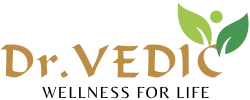No products in the cart.

What is the Advantage of Multivitamin Tablets?
What are Multivitamins?
Multivitamins are dietary supplements that contain a combination of vitamins and minerals. They are designed to fill nutritional gaps and ensure you get essential nutrients that may be missing from your diet. Commonly, multivitamins include vitamins A, C, D, E, and various B vitamins, as well as minerals like calcium, magnesium, and zinc. While they can help prevent deficiencies, their benefits in reducing chronic disease risk or enhancing overall health are often debated. They should complement a balanced diet, not replace it, and it’s wise to consult with a healthcare provider before starting them. Typically, a well-rounded diet filled with fruits, vegetables, whole grains, and lean proteins provides all the necessary nutrients.
Who should consume supplements?
Specific groups, including older adults, pregnant women, or those with certain health issues, might gain from targeted supplements. Consulting a healthcare professional is crucial to assess whether you require extra vitamins or minerals.
Taking a daily vitamin may not significantly improve heart health for most people. Research shows that while multivitamins can fill nutritional gaps, they don’t consistently lower the risk of heart disease. A balanced diet rich in fruits, vegetables, whole grains, and lean proteins remains the most effective way to support heart health. Certain vitamins, like Vitamin D and Omega-3s, might offer some benefits, but it’s crucial to consult with a healthcare provider before starting any supplement regimen. Overall, focusing on a healthy lifestyle and diet is more beneficial for maintaining a healthy heart.
Definitions:
Omega-3s are essential fatty acids crucial for overall health. They are primarily found in fatty fish like salmon, as well as in flaxseeds, chia seeds, and walnuts. Omega-3s are known for their anti-inflammatory properties and can support heart health by reducing triglycerides and lowering blood pressure. They also contribute to brain function and may help in managing depression and anxiety. Since the body cannot produce Omega-3s on its own, they must be obtained through diet or supplements.
Best Vitamin Supplements for Women should include –
Ideally, a woman should meet all her nutritional needs through her daily diet. However, this isn’t always feasible. Factors such as increased fitness activities, illness, prolonged stress, or medical conditions can lead to gaps in nutrient intake. In these situations, supplements can be beneficial.
Here are ten best vitamin supplements for women’s health and wellness.
1. Vitamin D: Supports bone health, immune function, and mood regulation.
2. Calcium: Essential for bone strength and prevention of osteoporosis.
3. Iron: Important for energy levels and preventing anemia, especially during menstruation.
4. Vitamin B12: Aids in energy production and supports nerve health.
5. Folate (Vitamin B9): Crucial for cell division and especially important during pregnancy for fetal development.
6. Vitamin C: Boosts immune function and aids in skin health and iron absorption.
7. Omega-3 Fatty Acids: Supports heart health and reduces inflammation.
8. Magnesium: Important for muscle and nerve function, as well as bone health.
9. Vitamin E: Acts as an antioxidant, supporting skin health and immune function.
10. Biotin: Promotes healthy hair, skin, and nails.
Always consult with a healthcare provider to tailor supplements to your specific needs and health conditions.


Leave a Reply